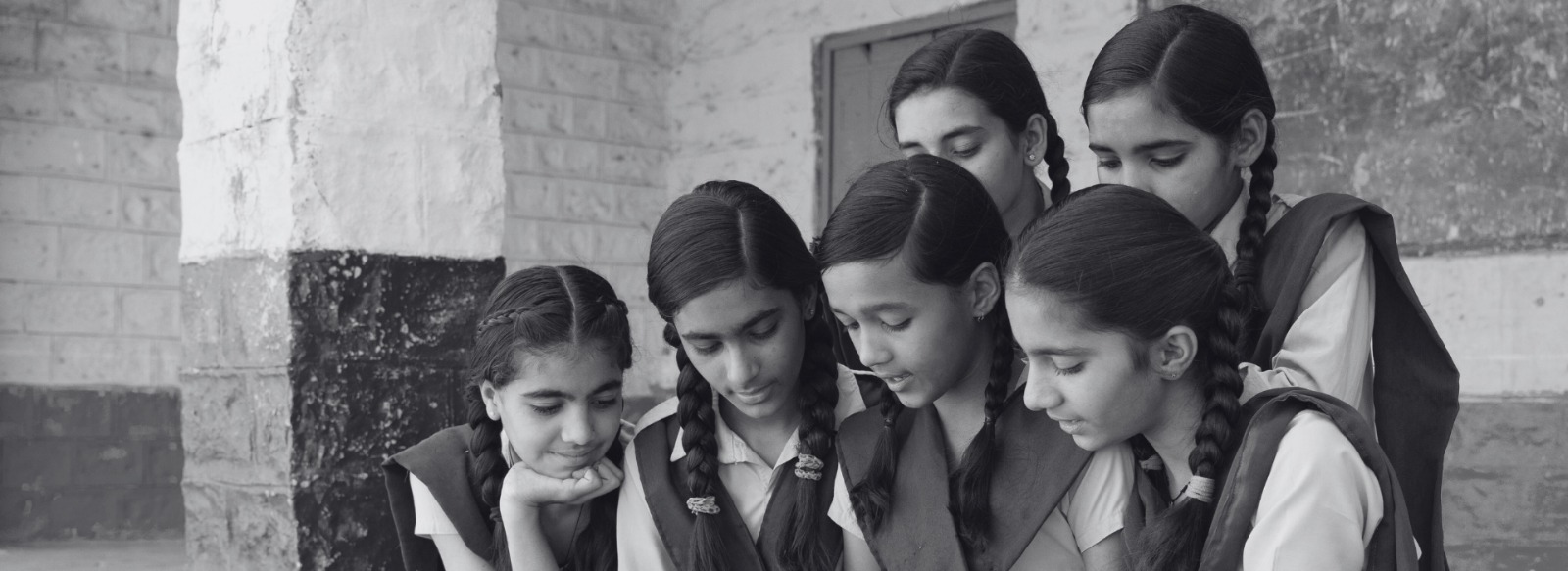



We aim to explore emerging priorities in early education, including ECE delivery models, the early childhood workforce, inclusive ECCE, and the use of technology and AI. Through scalable pilot programs across these thematic aeras, we aim to generate evidence, learnings and innovations that hold the promise of system-wide change in access and quality of early education for millions of young learners in India.
Home-based learning has a significant impact on children’s early development, yet in many rural and tribal communities an intent-to-action gap persists. Parents want to support their children but face barriers of time, literacy, and resources. There is now an opportunity to leverage increasing digital access through affordable smartphones and mobile internet among low-income and rural households to enhance parental support and home-based learning for young learners.
Ahvaan Trust has partnered with TopParent, a parent engagement app, to pilot a six-month intervention with over 1,000 parents of 5–6-year-old children enrolled in government Balvatikas across Durg, Balod, Gariyaband, and Kanker districts of Chhattisgarh. The pilot explores whether tech-enabled tools can help families weave learning into daily life, strengthening home-based learning and preparing children for formal schooling.
TopParent’s earlier pilots in Delhi and Rajasthan showed encouraging response from parents and children to digital learning. Ahvaan’s own surveys (November 2024 and April 2025) with more than 720 rural households in Chhattisgarh found that 78% of low-income families had at least one smartphone at home, and that children aged 5–6 were already using smartphones for an average of 2–3 hours per week. The surveys also highlighted that while most parents are eager to support their children’s learning, they continue to face constraints of time, literacy, and resources.
Through this pilot, we aim to explore whether sustained engagement of parents and children on a mobile application translates into measurable improvement in learning outcomes. We will also study how factors such as access to technology, gender patterns in usage, and parent demographics shape the effectiveness of digital learning.
Launched in August 2025, the six-month pilot combines free access to the TopParent app, active digital nudges via WhatsApp, and limited in-person interventions such as orientation sessions in Balvatikas and household visits. Teachers and Anganwadi workers are closely involved to reinforce the continued use of the app by parents and children at home.
High-quality early childhood education is the foundation of lifelong learning and success. As India commits to universal foundational learning by 2030, including quality and equitable early education, the need for strengthening early education delivery models has become urgent. In lower income communities and rural areas, where children depend exclusively on Balvatikas and Anganwadis for early education, teachers and Anganwadi workers are central but often under supported and overstretched. Parents, equally vital in shaping children’s early years, also face barriers of time, literacy, and limited exposure. There is an opportunity to design delivery models that complement teachers and Anganwadi workers, bring parents into the fold, and create more consistent early learning experiences for underserved children.
Ahvaan’s ECCE Fellowship for Women pilot program aims to respond to this opportunity by introducing a new layer of community-based support for teachers, Anganwadi workers, and parents. Fellows are trained young women from local communities who strengthen classroom delivery in Balvatikas and Anganwadis while also guiding parents to create stronger home-learning environments. This dual role addresses both school and home, ensuring that children are supported where they spend most of their early years.
Starting in 2025–26 in Chhattisgarh, the Fellowship will run as a one-year program for young women from rural and low-income communities. Fellows will receive structured training in early childhood pedagogy, foundational literacy and numeracy, and parent engagement while supporting Balvatika and Anganwadi teachers with classroom preparation, help connect parents to simple home-based practices, and serve as a bridge between school and community. Fellows will also upskill themselves in important skills such as digital and financial literact through mentoring and field experience, creating a locally rooted cadre that strengthens early education delivery where resources are thin.
The Fellowship aims to achieve four core outcomes:
Children access age-appropriate, play-based learning both in classrooms and at home.
Teachers and Anganwadi workers receive ongoing support to implement pedagogy with confidence and consistency.
Parents become more confident, aware, and engaged in their child’s early learning journey.
A cadre of trained ECCE workers emerges within the community, offering sustainable, locally rooted support and strengthening the public system.
This design aligns closely with India’s policy priorities under the National Education Policy (2020), the ECCE Policy (2023), and the NIPUN Bharat Mission, all of which emphasize the need for skilled frontline workers and stronger home-school linkages. It also draws inspiration from recent models such as Meghalaya’s ECD Fellowship (2025) and the Government of India’s Vidyanjali program, which recognize the value of community-based cadres in strengthening early education delivery.
By piloting this approach in Chhattisgarh, Ahvaan aspires to create a practice-based prototype that can demonstrate how trained local fellows can complement existing systems and bridge the persistent gaps between policy intent and classroom and community practice.
"Since the launch of Chhattisgarh’s Balwadi programme in 2022, Ahvaan Trust has been an invaluable partner. From co-developing the Balwadi curriculum with Samagra Shiksha and SCERT, to training teachers and creating 62 Model Balwadis, their work has set new benchmarks for quality early learning. Their hands-on mentoring and collaborative approach have significantly strengthened teacher confidence and classroom practices."